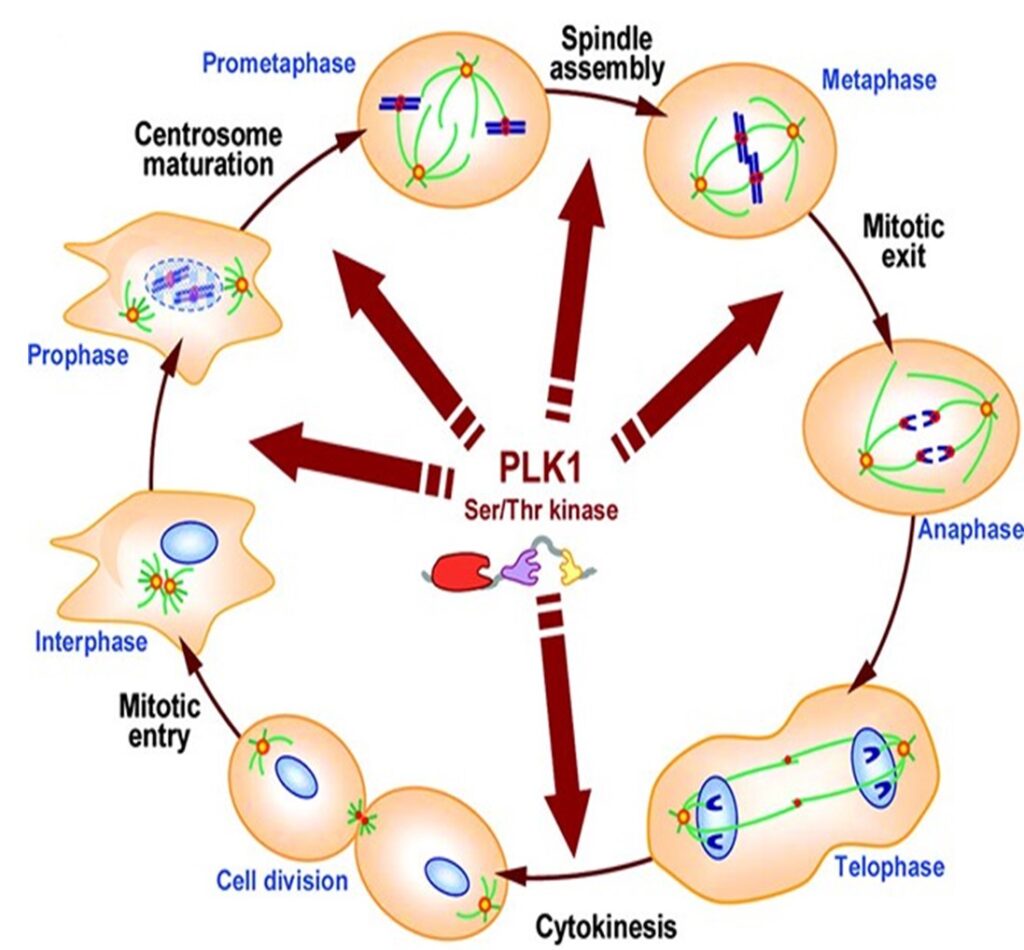Investigation of the mechanisms underlying the inhibitions of mitotic genes in cholangiocarcinoma cells


Cholangiocarcinoma (CCA) is malignancy arising from cholangiocyte in the biliary tract and is the second most common type of primary liver cancer. This type of cancer is associated with poor prognosis and limited treatment options. The major risk factors of this cancer associate with chronic inflammation, cellular injury in the bile duct, and partial obstruction of bile flow caused by various conditions such as primary sclerosing cholangitis (PSC), hepatolithiasis and infestation by liver fluke (Opisthorchis viverrini) (Kubo, Kinoshita, Hirohashi, & Hamba, 1995; Sirica, 2005; Watanapa & Watanapa, 2002).
Recent studies attempt to investigate the molecular pathogenesis of this disease, including etiology and molecular alterations. Genetics and epigenetics changes in cholangiocarcinoma have been identified from a number of studies. Alterations of several cellular functions including self-sufficiency and proliferation, apoptosis resistance, escape from senescence, and tumor invasiveness and metastasis, are proposed to contribute the onset of cholangiocarcinoma (Lazaridis & Gores, 2005). The uncontrolled proliferation of cells due to harboring of genes mutations causes cancer development. Cell cycle progression is a highly regulated process that involves several steps including DNA replication and cell mitosis. At present, understanding the mechanisms involved in cholangiocarcinoma cells development and finding the indicators of the response to cancer treatment is beneficial to the treatment option of this cancer. Recent research conducted by the Thailand Initiative in Genomics and Expression Research for Liver Cancer (TIGER-LC) Consortium, Chulabhorn Research Institute, discovered that genes involved in mitotic process are highly expressed in CCA. The study discovered molecular subtypes of cholangiocarcinoma and classified the subtype related genes. PLK1 and ECT2 are the major driver genes which are highly expressed in C1 subtype (Chaisaingmongkol et al., 2017). This subtype shows poor prognosis and the defect of mitotic checkpoint pathway.
We are interested in investigating the responses of the inhibitions of mitotic genes in CCA cell lines. Therefore, the purpose of this research project is to examine the mechanisms underlying the inhibitions of mitotic genes in cholangiocarcinoma cell lines and discover the indicators of the responses. This research project will be conducted to gain more knowledge on molecular mechanisms relating to inhibition of the key mitotic genes in cholangiocarcinoma cell lines. Consequently, research on these areas may provide a better understanding of molecular pathogenesis of cholangiocarcinoma and help to improve treatment strategies.
Schematic diagram of Polo-like kinase (PLK)1 regulation og the cell cycle

Oncologist, Volume 14, Issue 6, June 2009, Pages 559–570
References
Chaisaingmongkol, J., Budhu, A., Dang, H., Rabibhadana, S., Pupacdi, B., Kwon, S. M., . . . Wang, X. W. (2017). Common Molecular Subtypes Among Asian Hepatocellular Carcinoma and Cholangiocarcinoma. Cancer Cell, 32(1), 57-70.e53. doi:10.1016/j.ccell.2017.05.009
Kubo, S., Kinoshita, H., Hirohashi, K., & Hamba, H. (1995). Hepatolithiasis associated with cholangiocarcinoma. World J Surg, 19(4), 637-641.
Lazaridis, K. N., & Gores, G. J. (2005). Cholangiocarcinoma. Gastroenterology, 128(6), 1655-1667.
Sirica, A. E. (2005). Cholangiocarcinoma: molecular targeting strategies for chemoprevention and therapy. Hepatology, 41(1), 5-15. doi:10.1002/hep.20537
Watanapa, P., & Watanapa, W. B. (2002). Liver fluke-associated cholangiocarcinoma. Br J Surg, 89(8), 962-970. doi:10.1046/j.1365-2168.2002.02143.x





